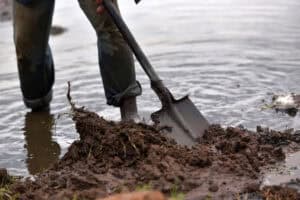Mark Gevisser's new book Lost And Found In Johannesburg deals with several journeys Gevisser undertakes – physical movements, yes, but also emotional and philosophical ones.

And this is a city that many people make a point of not exploring.
“That’s why I called one of the chapters in the book Closed City,” explains Gevisser.
“I thought of that title after reading the book Open City by Teju Cole, which is a story of aimless wandering around New York; a sort of history of flaneury (wandering around and observing what is going on). Johannesburg is a city of borders and boundaries that need to be crossed. It allows for exploration.
“But it’s a very atomised place. By definition, a city is a place where you rub up against other people. Joburg defies that because of our apartheid history and the security fears of our present. Just one example – Little Ethiopia off Jeppe Street. That community moved off the street and into the skyscrapers; into another kind of gated community.”
Gevisser himself has always wanted to cross boundaries. What is it that compels him and those like him to do so?
“There are reasons we’re attracted to certain things,” he says.
“I knew I was different early on – I think it had to do with my sexuality. There are gay people who don’t want to cross boundaries. But I somehow felt I didn’t belong in my childhood, even though it was safe and protected. There’s a sense that I and others live in a sort of borderland; a place we see as a sort of model for our ideal society.”
Different generations have different views. Given the same resources, someone who lived through the worst of apartheid and a “born free” youngster will often draw opposing conclusions about a single subject.
“Today’s kids live in an age of global positioning, and there are no boundaries on a GPS,” says Gevisser, who grew up imagining what lay beyond the lines on the maps in his old copy of Holmden’s Register of Johannesburg: Randburg and Sandton Townships.
“They have a selfish understanding that says, simply: ‘I am here; that is where I must go’.”
One of the boundaries Gevisser crossed early on was the one that tried to stop people of different races having relationships.
“I’ve been in a mixed relationship since the early Nineties,” he says.
Gevisser’s research for Lost And Found ranged from Hillbrow to tiny hamlets in Lithuania, requiring yet more border-crossing.
“The book came out of an act of calculated flaneury,” he smiles.
“My research began with maps and images I’d begun collecting. They were piling up in my study until I shuffled them around and asked how these photographs told me who I am. I wanted to establish a connection, to write something that wasn’t me or just non-fiction about a city. My father died just as the research began, and the
timing was important, as I felt I needed to understand who he was, and who I am. He and I had spoken about a Lithuania trip, so it was important for me to follow through on that for him.”
The whole direction the book was taken was thrown out of sync when Gevisser became a victim of crime as he was finishing the manuscript. What impact did that event have on his writing?
“I had my manuscript in my bag when the attack occurred,” he reflects. “Worrying about the intruders taking it got me through three terrible hours. Afterwards, I found myself with a dilemma. This book is about my relationship with Johannesburg, but I couldn’t leave the attack out. I dealt with it by throwing myself back into Joburg. And the art of writing about it helped me to create order from chaos. Imposing a narrative on everything helped me to gain control over it.”
Support Local Journalism
Add The Citizen as a Preferred Source on Google and follow us on Google News to see more of our trusted reporting in Google News and Top Stories.







